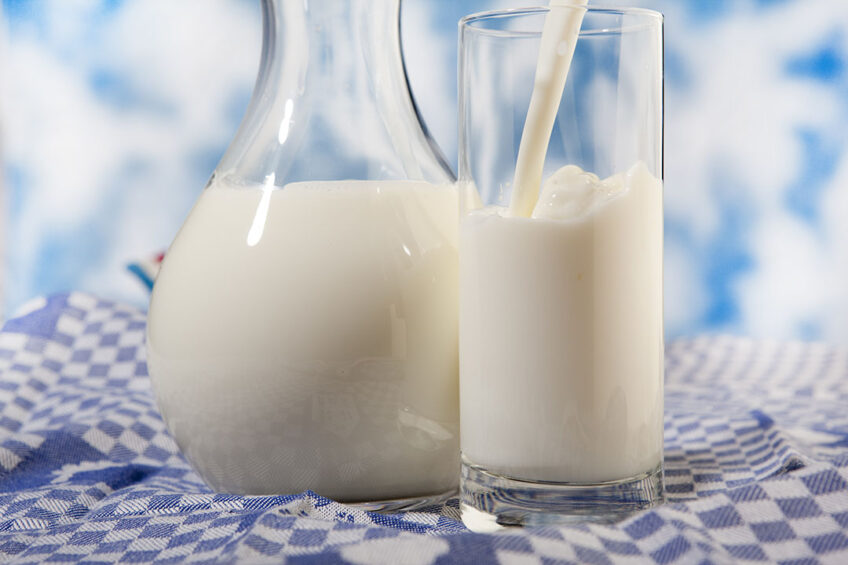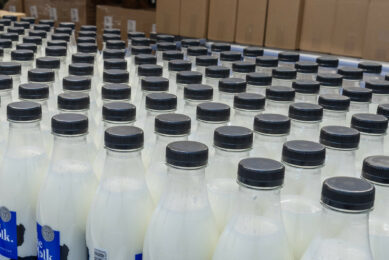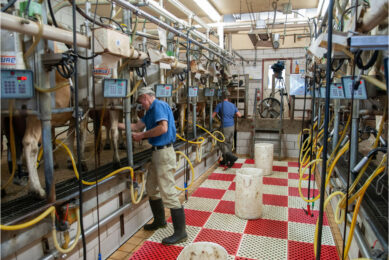Covid-19: Iran’s dairy industry in the spotlight

Iran’s government is considering steps to support the national dairy industry which is currently seeing a slump in demand.
Iran’s government is allowing dairy companies to export 10,000 tonnes of powdered milk by the end of April 2020 in order to support the national dairy industry amid the drop in demand due to the closures in the food service industry etc, the Iran Industry Ministry announced in March.
In addition to this a large portion of the population are not able to afford dairy products in the desired quantities because their purchasing power was affected with the Trump sanctions and now demand has also declined to Covid-19.
Previously export restrictions were introduced in 2018 to curb and prevent price fluctuations on the domestic market amid the sanctions introduced by the Trump administration against the country.

Export
However, since 20 April this year, the Iran Ministry and Agricultural Jihad and Iran’s Dairy Industries Association failed to agree on the list of companies allowed to export their products, so export is yet to begin, local newspaper Dunya-e-Eqtesad said. The problem is that a large number of companies in Iran has filed an application to export powdered milk, while some of these have had no experience in the export of powdered milk, the newspaper reported.
Iran’s Dairy Industries Association estimated that the country has been producing 7 million tonnes of milk per year, exporting 450,000 tonnes for about US $770 million. The industry added production capacities for 1 million tonnes of dairy production during the past three years, but the output is expected to shrink this year.
Demand decline and Covid-19
Allahyar Valizadeh Vand Chali, chairman of the Board of Directors of the Babian Livestock Industry Union revealed that dairy plants were refusing to accept milk from farms because the warehouses were filled with finished products due to a slump in demand on the domestic market.
Some companies were even forced to shut down their plants, he added. For example, in the Mazandaran province only 10 companies were continuing operation, while many others have suspended production due to Covid-19 and a shrinkage in demand, he said.
The problem has affected the entire supply chain, as milk farmers get no payments, resulting in no money to purchase feed, Mehr News Agency reported, citing local market participants.
Supportive measures
With this backsetting of low demand and the impact of Covid-19, Iran’s Dairy Industries Association has also appealed to the government, asking for a government contract for 2 million tonnes of milk – to manufacture dairy products, which could be distributed by the government to the percentage of the population (15%) in Iran who are struggling to make ends meet – and now with the nationwide lockdown, most have lost jobs. Therefore, the measure is called upon to protect the most vulnerable part of society in Iran.
According to Reza Bakeri, secretary of Iran’s Dairy Industries Association, the proposal was originally put forward in mid-2019 with the aim to support the consumption on the domestic market and to improve capacity rate of the dairy companies.
The 2 million tonnes of milk will be used to manufacture only – pasteurised milk, yogurts and cheese, according to Iran’s Dairy Industries Association. So far no decisions have been made yet.
Join 13,000+ subscribers
Subscribe to our newsletter to stay updated about all the need-to-know content in the dairy sector, two times a week.










